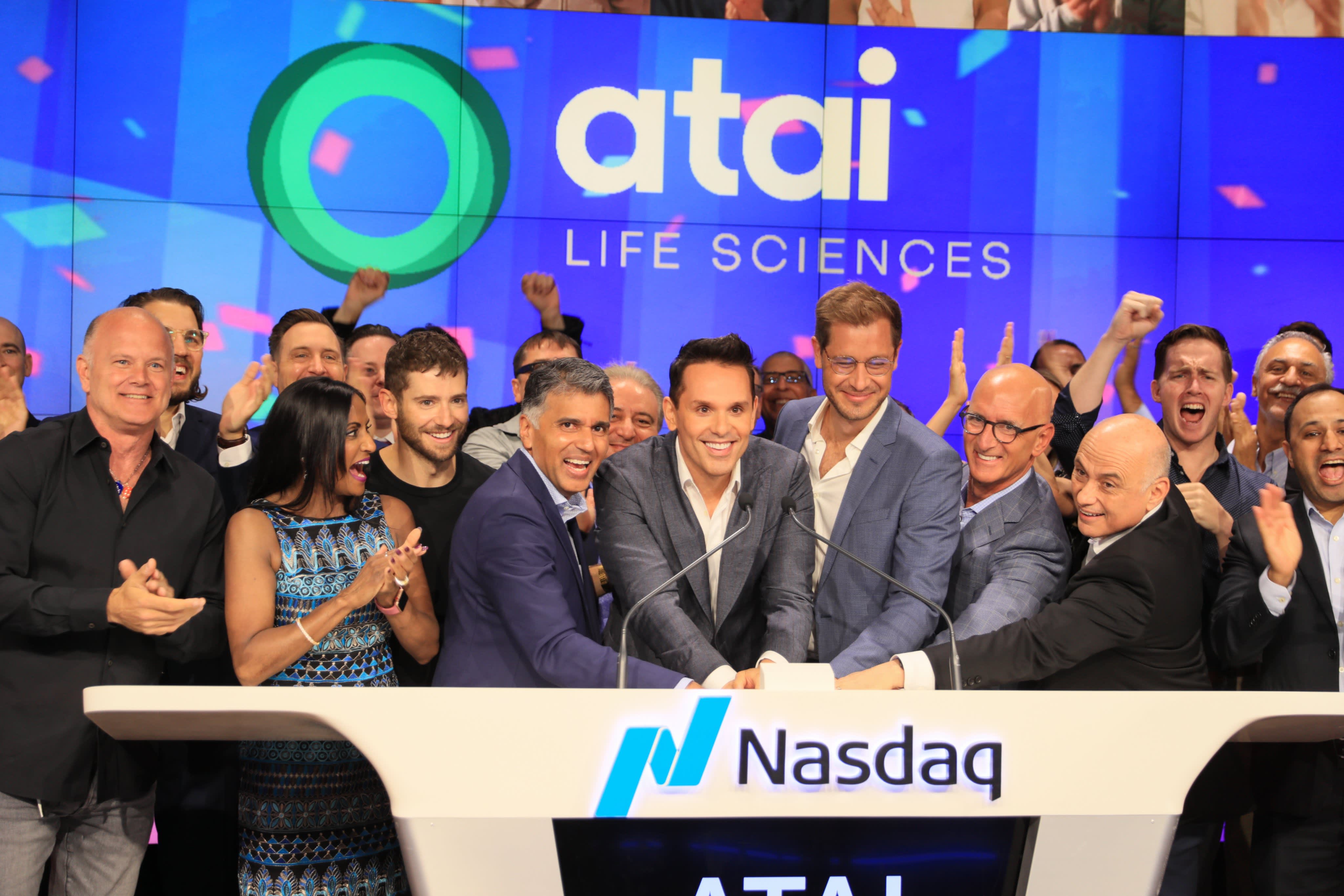Peter Thiel-backed psychedelic start-up increases stake in Compass Pathways

Atai Life Sciences at the Nasdaq for its IPO, June 18, 2021.
Source: Nasdaq
Atai Life Sciences, the Peter Thiel-backed start-up that wants to use psychedelic drugs to treat mental health conditions, has increased its stake in fellow drug developer Compass Pathways.
Atai bought another 420,000 Compass Pathways shares in recent days, taking its stake in the company from 19.4% to 20.8%.
The new shares were bought at around $31 each and Atai paid around $12 million in total.
Atai, which is already the largest Compass Pathways shareholder, is planning to increase its stake in Compass Pathways to more like 29% in the coming weeks, according to a source close to the companies who preferred to remain anonymous as the discussions are private.
Christian Angermayer, the founder and chairman of Atai, told CNBC Monday that he believes Compass Pathways is one of the most undervalued and impactful biotech stocks.
Compass Pathways, which Thiel has also invested in, wants to use psilocybin (the compound found in magic mushrooms) to treat depression. It debuted on the Nasdaq stock exchange last September and it has a current market value of $1.4 billion.
Meanwhile, Atai listed on the Nasdaq in June, raising $225 million at a valuation of $2.3 billion. The stock immediately popped 40% but it has since halved in value and Atai’s current market cap is $1.7 billion.
Billionaire Peter Thiel, PayPal co-founder and chairman of Palantir Technologies, during a news conference in Tokyo, Japan, on Nov. 18, 2019.
Kiyoshi Ota/Bloomberg via Getty Images
Atai, which describes itself as a drug development platform, was set up to acquire, incubate and develop psychedelics and other drugs that can be used to treat depression, anxiety, addiction and other mental health conditions.
There is growing interest in certain psychedelics after recent clinical studies suggested that some could help patients with a number of mental illnesses, either in combination with traditional solutions or in cases where nothing else has worked.
“The current treatments [for mental health issues] which are out there are definitely not sufficient,” company co-founder Angermayer told CNBC in a previous interview.
“I don’t want to say they don’t work at all because some people are helped by them, but they’re not sufficient.”
Almost a billion people suffer from mental health problems worldwide, according to the World Health Organization.